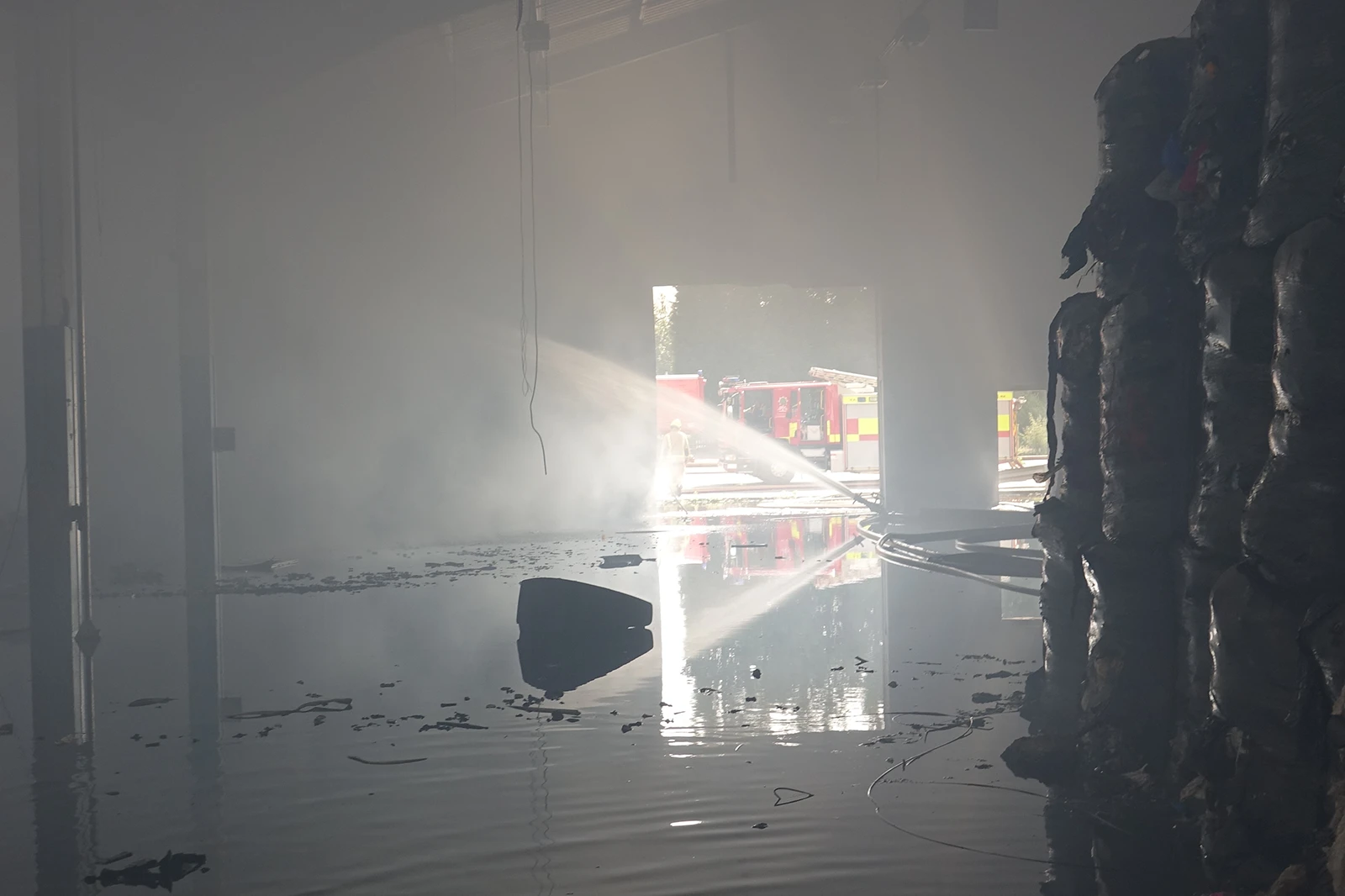Fire Prevention Plans

A waste site Fire Prevention Plan (FPP) (available here as a 360 produced pdf for easy printing) is a document required and enforced by the Environment Agency as a condition of an Environmental Permit. The Plan is a detailed document and management system used by site operators to effectively manage site fire risk and its impact on the environment. FPPs are intended to provide a management framework to achieve three key objectives:
- minimise the likelihood of a fire happening
- aim for a fire to be extinghuished within 4 hours
- minimise the spread of the fire within the site to neighbouring sites
Background
The profile of waste site fires has risen over the last ten years or so not only because of the impact of such fires on nearby residents and businesses, but also on the water environment (surface and ground). As a result of a signed and agreed partnership between the UK environment agencies and UK fire services, the response to fires on waste sites has changed significantly. This has resulted in waste site fires burning for longer as fire services adopt a ‘controlled burn’ strategy. However, it was recognised that prevention is better than cure, so further guidance was developed.
The development of operational strategies for waste fires has been in parallel with fire prevention advice for waste sites provided by the fire service.
‘WISH Guidance ‘Reducing Fire Risk at Waste Management Sites’ was updated in March 2017 by the Waste Industry Safety and Health (WISH) Forum, to provide site operators with the information and standards they need to reduce fire risk. The guidance aims to provide advice and standards for the waste and recycling sector on good and acceptable practice, enabling them to reduce the risk of fire on their sites. Organisations across the waste industry and beyond have participated in consultation on drafts of the guidance.
The Environment Agency has published Fire Prevention Plan guidance along with a FPP template that can be followed. Recent experience dealing with Agency officers on this subject provides us with their position. “Should a site operator wish to deviate from the Fire Prevention Plan guidance, they may do. However, they would need to present a full technical argument for doing so”. In other words unless the site operator wishes to provide detailed calculations and scientific evidence, that they should not comply with the Agency guidance, then as a permit condition, they will have to follow the Agency guidance.
What is required?
The following are some of the issues considered in a FPP:
- Waste stack sizes limited by the FPP guidance
- A stack fire and self-combustion monitoring system
- Fire risk reduction plan
- Firefighting plan including firefighting facilities and systems that consider the environmental impact of firefighting
- Information for the fire service
- Fire water run plan including in certain circumstances containment facilities.
Current situation
All new Permit and variation applications must be accompanied by a FPP that conforms with the current Guidance. These will be assessed by the National Permitting Service.
Existing Permit holders have been risk assessed by the EA. Those that have had a significant fire and/or are ‘DEF’ operators have/will be required to submit a revised FPP that conforms with the Guidance. These will be assessed by EA area officers.
The FPP Panel is being dissolved at the end of March 2017 but will assist with the above until then. By that stage, the NPS and area offices should have trained FPP staff in place.
What can we do?
360 Environmental offer a highly professional service delivered by their consultant fire risk assessor to work with waste site operators to produce a bespoke FPP. Our consultant who is a nationally accredited assessor has successfully worked with EA officers to deliver compliant FPPs that support waste site managers.
